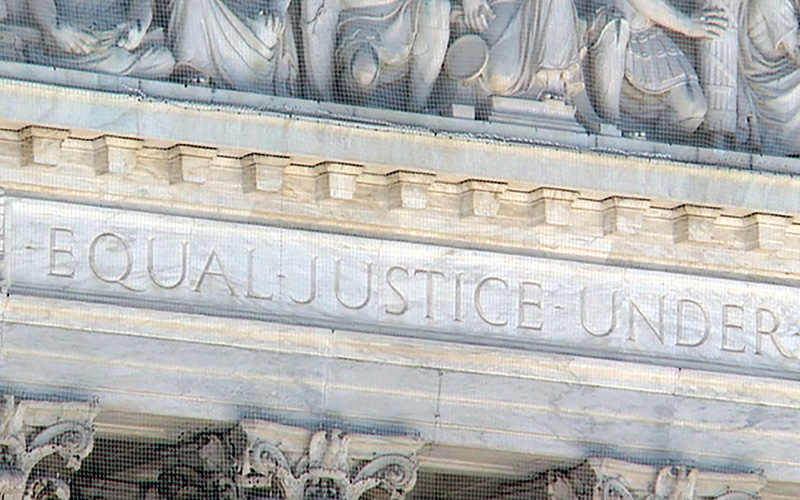
The Supreme Court overturned a $2.7 million award against Goodyear Tire and Rubber Co. and its attorneys for their behavior in a lawsuit that claimed the company’s tires were to blame for a 2003 motorhome crash in Arizona. (Photo by Nathan O’Neal/Cronkite News)
WASHINGTON – The Supreme Court on Tuesday overturned a $2.7 million award that Goodyear and its attorneys had been ordered to pay for withholding documents from a family that sued the tire maker over a crash in Arizona.
The unanimous court agreed that even though Goodyear had made “repeated and deliberate attempts to frustrate” Leroy and Donna Haeger’s lawsuit, lower courts had overreached by ordering the company to pay all of the couple’s legal fees in the case.
In her opinion, Justice Elena Kagan said that courts can only order payment of those fees that the Haegers had to pay as a direct result of the “bad faith” actions of Goodyear.
“In other words, the fee award may go no further than to redress the wronged party ‘for losses sustained,'” Kagan wrote, “it may not impose an additional amount as punishment for the sanctioned party’s misbehavior.”
Attorneys for both sides in the case did not return calls seeking comment on the ruling Tuesday.
The case stemmed from a 2003 accident when a front tire on the Haegers’ motorhome failed, sending it off the road where it tipped over, injuring the couple and two other family members who were in the vehicle.
The Haegers filed suit in 2005 charging, among other things, that the particular type of Goodyear tire, originally used on delivery and pickup trucks, was defective when used on motorhomes.
Discovery in the case dragged on for nearly five years, with the Haegers’ attorneys repeatedly going to court to press Goodyear for documents relating to the testing of the G159 tire. Just as the case was to go to trial in 2010, the two sides said they had reached agreement on a settlement.
Sometime after the case was settled, the Haegers’ attorney saw an article that mentioned internal heat and speed tests on the G159 that the Haegers had requested but not received from Goodyear, which said the documents did not exist. He went back to court seeking sanctions against Goodyear and its attorneys.
In 2012, U.S. District Judge Roslyn Silver ordered the $2.7 million award in an opinion that reminded the attorneys that “litigation is not a game.” She said the award was the result of Goodyear and its attorneys “repeated, deliberate decisions” to “delay the production of relevant information, make misleading and false in-court statements and conceal relevant documents.”
Silver said total legal fees would not usually be awarded, but said this was not a usual case but a “truly egregious” one. That justified awarding the Haegers all their legal fees, with Silver adding that they might have settled earlier and saved those fees if they had received the documents they had asked for.
The award was upheld by a divided panel of the 9th U.S. Circuit Court of Appeals, which said Silver was right to award an amount “reasonably believed” to have been caused by Goodyear’s misconduct. But in a dissent, Circuit Judge Paul Watford said there needs to be a “causal link between Goodyear’s misconduct and the fees awarded.”
Goodyear appealed to the Supreme Court, which heard the case in January.
The court Tuesday agreed that Goodyear could not be forced to pay the Haegers’ entire bill, since the family would have incurred some of those costs “even had the company behaved immaculately in every respect.” It sent the case back to the court of appeals for reconsideration.
Goodyear’s position was supported in friend-of-the-court briefs by the American Bar Association and the National Association of Manufacturers. Both declined comment Tuesday.